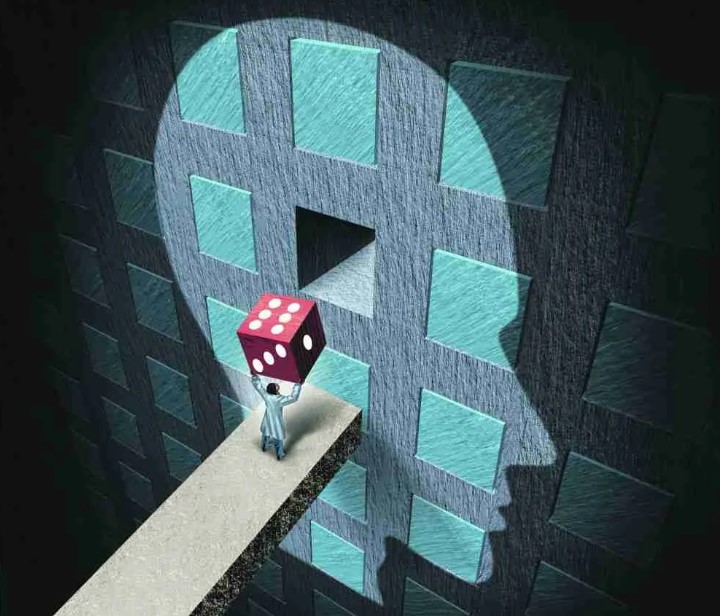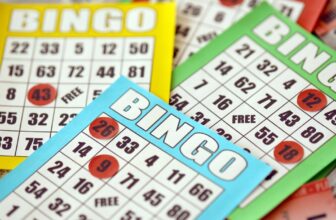
In everything, there’s always an explanation. We don’t just play at online casinos for no reason—just like you don’t go to school for no reason, you don’t drink water for no reason, and
you don’t breathe for no reason. Everything has a science behind it.
If you notice that online casinos are places where you can win or lose, why do you think some people still keep coming back—even when they know there’s a risk of losing and running out of money?
But the question is, what drives them to bet again? Is there any science that can explain situations like this? When can we say it’s too much? Are there any solutions?
If you understand this, well, your perspective on playing will change, and you’ll fully enjoy the experience once you play with real money at a live casino Singapore.
So in this blog, we’ll answer those questions based on the psychology behind online gambling. Make sure to read this post until the end!
Table of Contents
Why Do People Feel Excited When They Gamble?
Gambling isn’t just about money—it’s about the thrill. According to neuroscientists, placing a bet triggers the brain’s reward system, releasing dopamine, the same “feel-good” chemical linked to excitement and pleasure. That’s why even the anticipation of winning can be just as thrilling as the win itself.
Games at casinos are also crafted specifically to encourage you to keep playing. Flashing lights, sound effects and near-miss “wins” trick the brain into expecting an imminent jackpot, says Dr. Mark Griffiths, a gambling psychology expert. This makes players want to come back for more.

Source: upscalelivingmag.com
How Does the Brain React to Winning and Losing?
The psychological correlations between winning and losing in gambling elicit sharp reactions in the brain — and it all boils down to dopamine, the feel-good chemical. That’s what neuroscientists say: when you win, your brain secretes a rush of dopamine, which gives you that excited and rewarded feeling. It’s that rush that brings players back, hoping to chase that feeling again, according to Luke Clark, a Managing Director at University of British Columbia.
On the other hand, losing doesn’t always deter players from continuing to play. In fact, the brain sometimes responds in such a way that it acts to make players more determined to win back their losses, a phenomenon known as loss chasing based on the study of Breen & Zuckerman. It’s this emotional roller coaster that makes gambling so addictive.
What Psychological Tricks Do Online Casinos Use to Keep Players Hooked?
Online casinos are built to keep players hooked, and they employ a number of mental hacks to make gambling seem like something no one can resist. One of the big tricks is the “near-miss effect.” B.F. Skinner said a person is more likely to continue playing when they think that they were close to winning.
On that basis, it’s why a lot of slot machines feature two jackpot symbols with the third one just slightly away from the other two—it provides an illusion that a win’s almost there.
Variable rewards are another potent strategy. According to Natasha Dow Schüll, casinos use unpredictable payouts to trigger excitement and keep players spinning. This is similar to the way social media apps keep people glued to their screen — with rewards delivered at random intervals.
A large part of it also consists of bonuses and free spins. These incentives, according to Mark Griffiths, are provided by casinos to achieve a state of “loss aversion”—players feel like they need to keep playing to make the most of their “free” money.
All of these tricks conspire to make gambling exciting, engaging, and difficult to abandon.

Source: casinodesk.org
Why Do Some People Keep Betting Even After Losing?
Ever hear anyone say, “I just need one big win to get everything back?” That’s the classic gambler’s fallacy at work. When people lose, they don’t necessarily walk away — they double down, they believe their awful fate is going to end. It’s something like why a person who has been losing at a slot machine keeps playing, convinced the next attempt will finally grab the prize.
It’s also easy to keep playing at online casinos. Colorful animations, near-wins and instant deposits amplify the rush of almost winning, which encourages the desire to chase losses. It’s a psychological hamster wheel that lures players back, again and again.
When Does Gambling Turn Into an Addiction?
Gambling usually starts as just a normal pastime for most people—kind of like playing video games on your computer, watching sports, or trying out a new hobby. But for some, it slowly turns into something they can’t walk away from. So here’s the real question: When does it stop being just entertainment and turn into an addiction?
It is a huge warning sign if a person continues to gamble after they have lost more money than they can stand to lose. Instead of stopping, they chase losses, waiting for “that one big win that will fix it all. They may even lie about their spending, borrow money to gamble, or be restless when they’re not playing.
The main difference between fun gambling and problem gambling is control. If betting starts to feel less like an option or a choice, and more like a necessity, that’s when it’s time to take a step back and re-evaluate.

Source: gamesreviews.com
Can Gambling Ever Be Just for Fun Without Risks?
Absolutely! Gambling can be just for fun—as long as you treat it like entertainment, not a way to make money. Think of it like going to the movies or paying for a concert. You spend money to enjoy the experience, knowing you’re not getting it back. The same mindset applies to online casinos.
The trouble is, when people chase losses, or believe they can “outsmart” the system. That is when the fun becomes frustration. Setting limits, sticking to a budget and walking away when necessary are the secrets to keeping gambling fun.
At the end of the day, if you’re gambling responsibly and you’re just enjoying the thrill, then gambling can essentially be just another pastime that’s fun — without the risks taking over your life.
How Can Players Gamble Responsibly and Stay in Control?
Gambling should be an enjoyable, not stressful. But let’s be honest — it’s easy to get a little carried away, particularly when the winning rush sets in. How do you regain the reins, though?
First, create a budget and make sure to follow it. Even before you place a bet with Solarbet, determine how much you’re willing to lose. Once you reach that limit, step away — no “just one more round” excuses.
Second, take breaks. It can be hard to stop playing, especially if you’re trying to recover from losses. But stepping away allows you to think clearly and make reasoned decisions rather than acting on impulse.
Finally, know the warning signs of problem gambling. And if the fun of the bet stops being fun, and the thrill of winning feels like something you aren’t in control of? Maybe it’s time to step back. There’s no shame in establishing boundaries or even stepping away completely.
Frequently Asked Questions

Source: nubiapage.com
Is online gambling purely based on luck, or is there a psychological factor involved?
Luck isn’t the only thing at play in online gambling — psychology is a huge factor as well. So, yes, games like slots and roulette may depend on chance, but the way in which players think, feel, and respond impacts their choices. Have you ever paid attention to the allure of a near-win? That’s your brain craving that sense of winning.
Casinos also employ psychological tricks to lure players, such as flashing lights, exciting sounds, and rewards that produce dopamine — the brain’s “feel-good” chemical. Even betting strategies such as double down after a loss arise from human psychological tendencies. So while luck plays a role in the outcome, your mindset informs your approach to the game.
How can I tell if I’m gambling for entertainment or if it’s becoming a problem?
One of the simplest ways to identify this is by examining how you currently feel about gambling and the impact it has on your life from day to day. When you are gambling for fun, you can walk away whenever you want without any pressure. But if you are chasing losses, or are anxious about your gambling, or are losing money you cannot afford to lose, it may be a problem.” Ask yourself: Are you betting to enjoy the game, or because you’re feeling like you have to? If it’s the latter, it’s time to take a breather. Setting limits and taking breaks can help keep things in control before it gets out of hand.
What are some practical ways to set limits and gamble responsibly?
Gambling is meant to be an entertaining and fun pastime. One of the best ways to stay in control is to budget and stick within that budget—never bet more than you can afford to lose. Regular breaks also help prevent chasing losses. Even tools like self-exclusion are available to help players manage how much they spend on sites like Solarbet. Should you feel like gaming might be consuming more of your life than you’d like, don’t hesitate to pull back.







